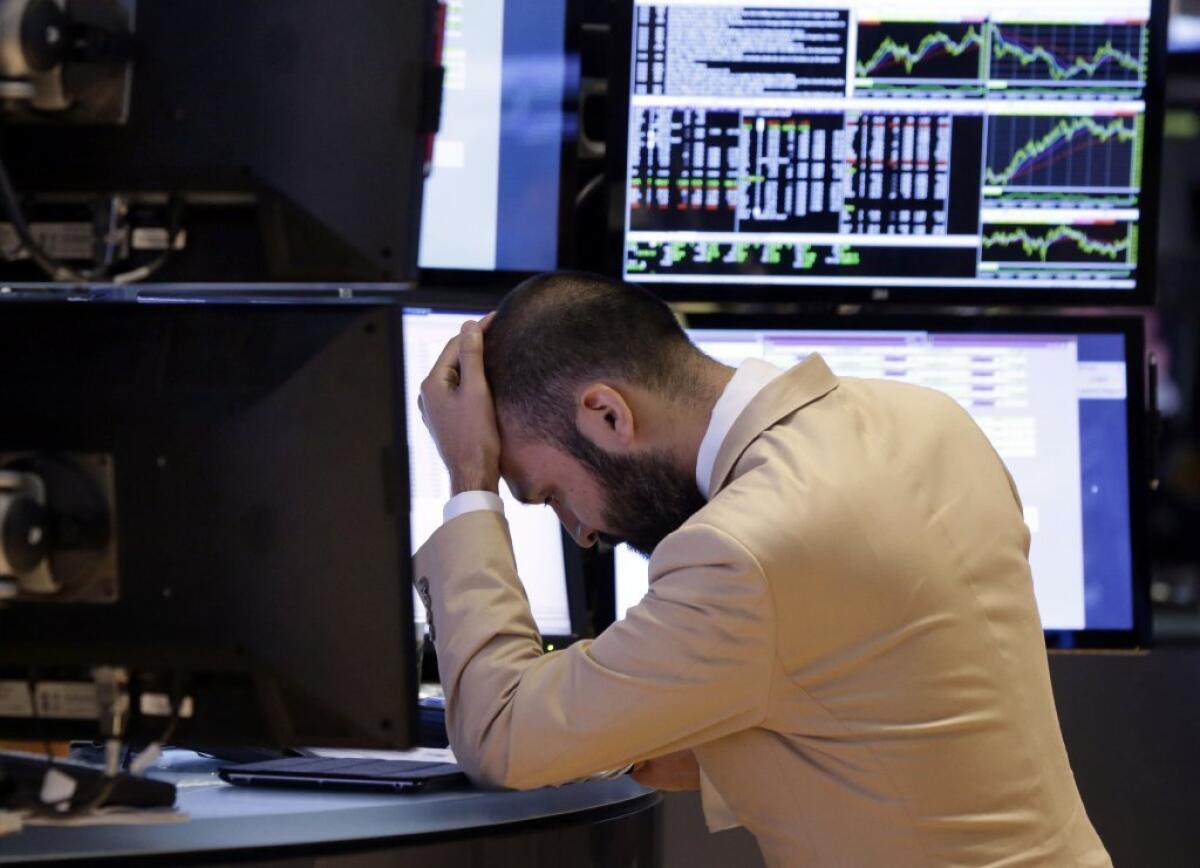Shutdown/debt limit: Are the markets beginning to sweat?

- Share via
Most Americans may be sleeping through the government’s fiscal stalemate, figuring that events like a debt default won’t have much impact on them.
That’s panicking market-watchers.
Over the last few days, analysis of the effect of a default triggered by Congress’ failure to raise the federal debt limit has become less theoretical. It will become even less so as the government shutdown continues and the date that the Treasury has set as a deadline for a debt-limit increase, Oct. 17, approaches.
You may remember veteran banking analyst Dick Bove from the 2008 financial crisis, when his authoritative insights into the condition of the banking industry made him a must-read. Now he’s showing real signs of panic at the American public’s seeming indifference to effects of a debt default, as expressed in opinion polls: “A shockingly high number of Americans -- 50% among some groups -- think that it would be good.”
In “disbelief,” Bove lays out the consequences. Short version: A default would lead to a depression. He says virtually every money market fund in the country would “break the buck,” this is, be unable to pay investors 100 cents on the dollar. Bond and balanced mutual funds would have to immediately sell off their holdings of defaulted securities, a multibillion-dollar fire sale.
Regarding the $1.85 trillion in U.S. government guaranteed debt held by American banks, no one would know what they are worth. A revaluation could wipe out all U.S. bank equity. Currencies around the world, many of them based on reserves of U.S. treasuries (China included), would crash. Recovery, Bove suggests, would take decades.
Over at White Plains, N.Y.-based Pantheon Macroeconomics, chief economist Ian Shepherdson estimates that the weeklong government shutdown already has cost the U.S. economy one-half percent of gross domestic product at an annualized rate.
“The precise number is unknowable,” he said, because it’s impossible to know how much blocked government spending will be recovered once it’s over. But most estimates limit their calculations to the loss in government output, including withheld wages of government workers.
They don’t estimate the hit to businesses that depend on the government, such as suppliers. He says that since fourth-quarter GDP growth was expected to in the neighborhood of 2% before the shutdown, the protracted stalemate could lead to a decline in GDP at worst, and at best to a very small growth number.
At Bank of America/Merrill Lynch, economists Ethan Harris and Michael Hanson have cut their fourth-quarter GDP growth estimate from 2.5% to 2%, and say more cuts may be warranted.
Reuters’ Alan Wheatley probably put the Washington tragicomedy in the best perspective, with emphasis on the tragedy.
“The world is watching Washington’s showdown,” he wrote, “with the same feelings of horror, disbelief and ghoulish fascination that a slow-motion car crash produces.”
More to Read
Inside the business of entertainment
The Wide Shot brings you news, analysis and insights on everything from streaming wars to production — and what it all means for the future.
You may occasionally receive promotional content from the Los Angeles Times.











